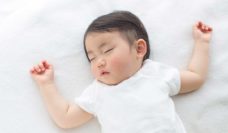How much are we supposed to sleep? If you’re between the ages of 18-60, the answer is somewhere between seven and nine hours each night. In 2014, the Behavioral Risk Factor Surveillance System (BRFSS) reported that 35% of Americans slept less than the recommended seven hours of sleep.
This lack of adequate sleep, or insomnia, is associated with depression, anxiety, substance use disorder, obesity, diabetes, cardiovascular diseases, work absenteeism, and accidents. The total health care costs for treating insomnia in the US is estimated to exceed $100 billion per year.
Poor sleep is not equally distributed across the population. In the same report, the BRFSS found that 45.8% of Black adults reported not getting at least seven hours of sleep, while 33% of Whites and 34% of Latinx people didn’t get enough sleep. Black women especially reported insufficient sleep duration.
Traci Bethea led a study comparing perceptions of racial discrimination and insomnia risk to understand why Black women’s sleep is disproportionately disrupted. The researchers analyzed data collected in the Black Women’s Health Study (BWHS) to study the association of everyday racism (defined by the researchers as acts like poor service in a restaurant or being followed in a store), lifetime racism (defined as discrimination in housing or at work), and insomnia risk.
Racism has been shown to increase stress, and one explanation for the link between insomnia and perceived racial discrimination is the biologic link between stress and the disruption of our body’s circadian rhythms.
The BWHS is the largest study of its kind dedicated exclusively to monitoring the health of Black women. The study follows a cohort of 59,000 Black women, who were enrolled in 1995, using biennial follow-up questionnaires.
The researchers report that 15% of the women in the study had clinical symptoms of insomnia. These women slept a full hour less than women who did not have insomnia, and their average sleep length was below the recommended seven-hour threshold.
The researchers also found that every measured category of everyday and lifetime racism was associated with a larger chance of insomnia. Using a combined racism measure, Black women who reported the most racism in their lives had three and a half times the chance of experiencing insomnia than women who reported no racial discrimination.
Two biological explanations for insomnia are hyperarousal and stress. Racism has been shown to increase stress, and one explanation for the link between insomnia and perceived racial discrimination is the biologic link between stress and the disruption of our body’s circadian rhythms. Hyper-awareness produced by constantly being prepared for discrimination is another potential link between insomnia and racism.
The Centers for Disease Control and Prevention say sleep is “not a luxury—it is something people need for good health.” Physically demanding jobs, long hours, and high stress are frequently identified as reasons people don’t get enough sleep. What does it mean for the public’s health if racism is one of the reasons why some people sleep less?
Photo by Sylvie Tittel on Unsplash














